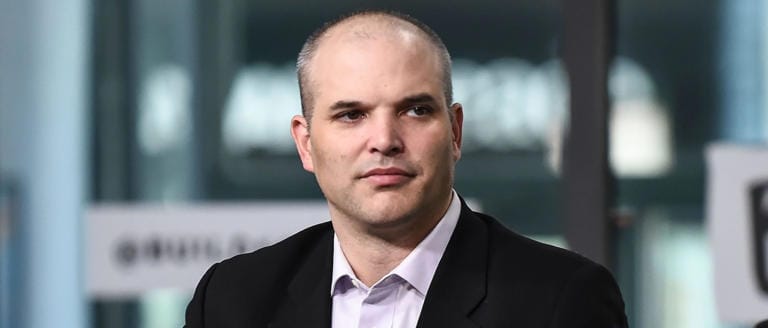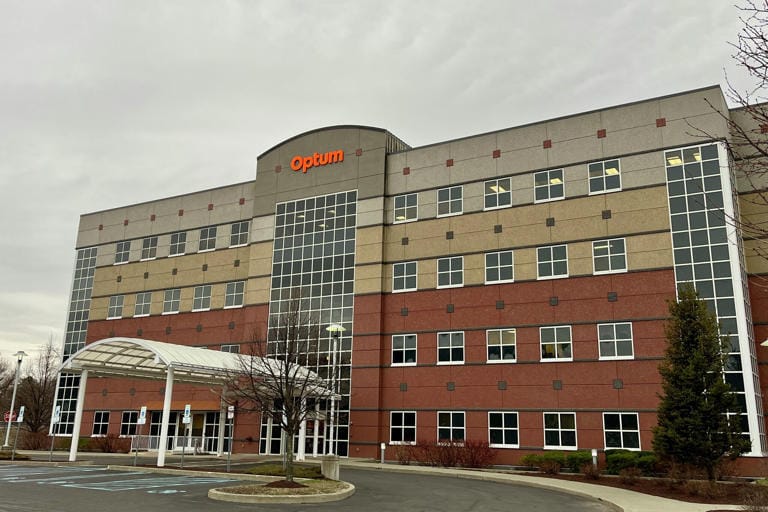- Salty Ginger Talk Newsletter
- Posts
- Salty Ginger Talk Newsletter
Salty Ginger Talk Newsletter
April 3rd, 2025

Journalist Matt Taibbi files $10 million libel lawsuit against Congresswoman
Our take: Members of Congress enjoy (rightfully in almost every instance) protection from legal action for their statements in the capacity of their office. The Speech and Debate clause is there to prevent lawfare from silencing an elected official who is digging into issues in a public forum.
But is tweeting inflammatory statements that smear a private citizen who is a witness protected under this clause? It looks like we may find out.
Twitter files journalist Matt Taibbi filed a $10 million libel lawsuit against Democratic California Rep. Sydney Kamlager-Dove on Thursday after she accused him of being a “serial sexual harasser.”
Kamlager-Dove made the accusations Tuesday during a House Foreign Affairs Subcommittee hearing and later amplified them on social media. The congresswoman’s claims are “demonstrably false and were made with actual malice,” Taibbi’s lawsuit states.
“There is not much a person like me can say to a member of Congress hiding behind the protections of the Speech and Debate clause of the Constitution,” Taibbi wrote in a Substack post.
“One can, however, respond to a member arrogant enough to repeat those claims on social media,” he continued. “I’ve now done so, in the form of a $10 million libel lawsuit filed today in a New Jersey federal court.”
At issue are two decades-old articles that painted Taibbi in a negative light when he lived in Russia 20 years ago. The articles were a smear job that lacked any concrete evidence to back up their slanderous claims. Representative Kamalger-Dove decided to enter these articles into the Congressional record in an attempt to discredit Taibbi as a witness.
She then also took to Twitter to take her claims into the public forum. Taibbi promptly filed a $10 million libel lawsuit against the Congresswoman, who is now conspicuously silent on the matter. It will be very intriguing to see how this plays out.

COURTESY: MSN
Optum Health survey reveals shocking lack of care for both employees and customers
Our take: It is not front-page news that the vast majority of people in the US think the health care system is broken. Health insurance costs have skyrocketed; seeing a doctor under any circumstances typically involves waiting weeks or months, and the costs associated with care are impossible to understand or decipher. You also only find out how much things cost after the treatment has been administered, leaving many with large bills to navigate and negotiate with their insurance providers, who deny claims at an alarming rate despite having no medical training.
Optum Health Care is a subsidiary of United Health Care, the largest health care company in the country, and the 9th largest business overall. They have been buying up local doctors offices and hospitals at a fast clip, consolidating the industry, which generally leads to reduced options, poor service, and higher costs for customers. A recent survey of Optum Health stakeholders in upstate New York illustrates all these points.
In 2022, Optum purchased CareMount Medical, which has 2,100 providers and 1.6 million patients in the tristate area. In the Hudson Valley, there are Optum clinics in Lake Katrine, New Paltz, Rhinebeck, Poughkeepsie, Hopewell Junction, Fishkill, Brewster, Carmel, and throughout Westchester County. The following year, the company further consolidated the Hudson Valley health care market with its acquisition of Orange County-based Crystal Run Healthcare, which has about 400 providers at clinics in Middletown, Monroe, Newburgh, Rock Hill, Goshen, Warwick, and West Nyack.
Congressman Pat Ryan released a survey to Optum stakeholders to get a sense of how their experiences with the company were going. Let’s just say Optum has some work to do.
Hundreds of responses to Ryan’s survey— some of which the Times Union reviewed before they were made public— describe steep declines in care and customer service since Optum took over CareMount and Crystal Run facilities.
Ryan’s office said 41% of Optum patients who responded to the inquiry said they had experienced reductions in the quality of care they received at Hudson Valley medical practices after their purchase by Optum. In addition, 49% reported difficulty getting appointments, 37% reported increased wait times, and 33% reported difficulty seeing their preferred doctor.
“I tried for more than a year to get an appointment with a specialist and kept getting pushed off; my appointments were repeatedly canceled,” said Kimberley from Tivoli, who did not give her last name but also spoke at Ryan’s town hall last month in Poughkeepsie. “Once I finally did get in, it turned out to be cancer. I was incredibly lucky that it wasn’t too late. I’ve had to go without essential medication for days, despite calling in my refills, because Optum has messed up my prescriptions.”
Caregivers appeared to be affected, too: Respondents cited significantly shorter appointment times, rushed doctors, and an inability to get questions answered or prescriptions filled. One patient said they “love the providers” but that the “practices of the company make the experience nightmarish.”
More than one-third of respondents said they’d experienced “serious customer service issues” that interfered with their care, according to Ryan’s office. Most commonly, they cited intense difficulty with Optum’s phone system, which no longer allows patients to call their doctor’s office directly. Instead, patients are sent to a call center with wait times that can extend to several hours, with no guarantee their message will be read or responded to. In addition to causing significant frustration for patients, this has led some to miss out on critical medications, Ryan’s office said.
“Appointments get repeatedly canceled without explanation, and it’s impossible to get in touch with someone on urgent matters like medication refills,” said Sabrina Salagean of New Paltz, who said she has been a Crystal Run patient for more than a decade. “I have called Crystal Run twice a week since Feb. 7 asking for medication, and each time I waited over 40 minutes on hold just to leave a message.”
To quote Ricky Ricardo, “LUCY, YOU GOT OME ‘SPLAINING TO DO!!!! ” Insurance companies have entirely too much power in the health care system. If politicians want to win back the trust of the American public, fixing health care is a good place to start.
The answer is not hard. Deregulate and push everything to the state level. This is how home, auto, and life insurance work, and they all function just fine. Stop giving the insurance companies all the power and push the decisions to local jurisdictions, and this would all be fixed quickly.
With the billions of dollars of profit the insurance companies make, rest assured they won’t sit on their hands and voluntarily give up that power and money. Congress needs to grow a backbone and deal with this issue.

COURTESY: MSN
Reality is harsh for NYU grad
Our take: For several decades, society hammered young people on the importance of a college degree. It was the key to a better life, and anyone who eschewed college was destined for a life of poverty and misery. Unfortunately for millions of people who followed that advice, the cold hand of reality is waiting to smack them in the face when they step into the real world.
The mindset of the author in this piece speaks volumes about the snow job society pulled on generations of high school graduates. The author states:
I enrolled at NYU because I thought attending a prestigious institution would secure me a job or give me a leg up in the job application process. I could not have been more wrong.
As a writer, I'm still struggling to find a full-time job that pays the bills. In the meantime, I'm relying on my father for financial support.
After graduating with our bachelor's, many of my friends dove into the workforce; however, I was determined to get a master's to add an extra pizazz to my résumé. I wanted to earn an additional qualification in the hopes that if I landed an interview, I could negotiate a higher salary due to the further degree. But it hasn't helped.
Since receiving my master's, I have done seven unpaid internships at well-known fashion and culture magazines, dedicating hours to pitch meetings, drafting, editing, and creating articles that live on their websites. These bylines have been a fantastic feat to accomplish.
However, the trade-off, which seems somewhat fair, is also murky. I don't get paid. While I understand that unpaid internships are the norm within the editorial and fashion industry, I can't pretend it doesn't ruffle my feathers. Yes, I am getting something out of it, but the morality of asking someone to work for free is complicated.
Yikes! Here is the deal. A college degree is not a bad thing. It shows a level of commitment to show up for 4 years, do your work, and finish what you started. But in the real world, your degree (or degrees—plural in the author's case) doesn’t mean shit. Companies are looking for people that can help the company grow and succeed. A college degree does not guarantee any of those things. The degree may get you an interview or get your foot in the door (both good things), but unless you perform and show you can add value that others can’t, no one gives a fuck about your degree. No one.
I hold a degree in finance, so I am absolutely not anti-college. That said, no one cares about my degree. They care about what I do every day to accomplish our company's goals, drive our business, and make us successful. The rest of it is just window dressing.

COURTESY: MSN
Tip of the day
Engage in repetitive movements and left-right movements. Research has shown that repetitive movement (knitting, coloring, painting, clay sculpting, jump roping etc) especially left-right movement (running, drumming, skating, hopping) can be effective at self-soothing and maintaining self-regulation in moments of distress.
Quote of the day
The meeting of preparation with opportunity generates the offspring we call luck. - Tony Robbins